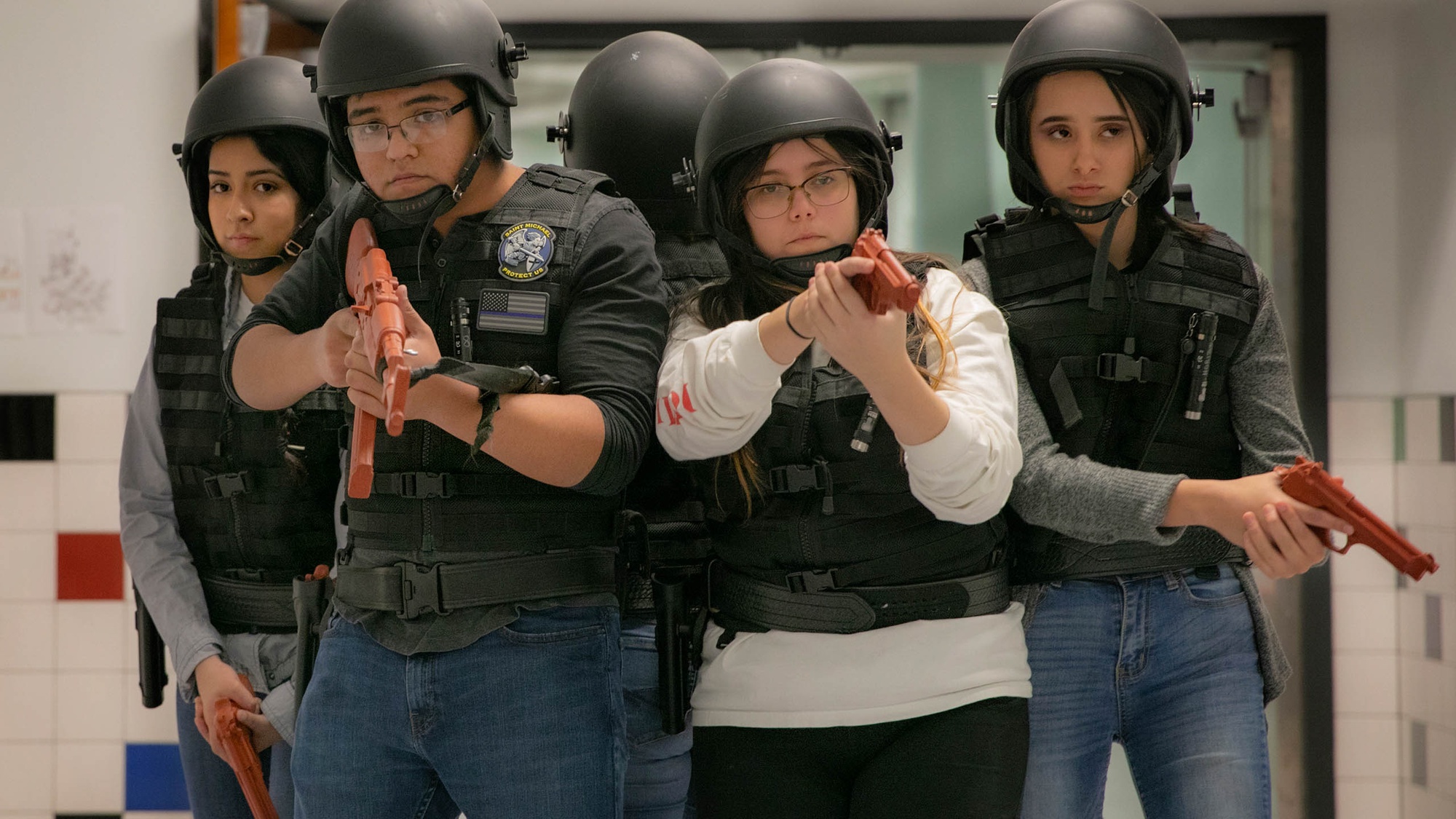
News
Cambridge Residents Slam Council Proposal to Delay Bike Lane Construction

News
‘Gender-Affirming Slay Fest’: Harvard College QSA Hosts Annual Queer Prom

News
‘Not Being Nerds’: Harvard Students Dance to Tinashe at Yardfest

News
Wrongful Death Trial Against CAMHS Employee Over 2015 Student Suicide To Begin Tuesday

News
Cornel West, Harvard Affiliates Call for University to Divest from ‘Israeli Apartheid’ at Rally
From Sundance: ‘At The Ready’ is an Urgent Look at the Law Enforcement Institution
Dir. Maisie Crow — 4 Stars

In Texas, there are over 900 high schools with law enforcement education and recruitment programs. One of those schools, Horizon High School, is 10 miles from the Mexico-United States border border in El Paso, Texas — the largest city on the border and the city with the highest immigration rates in the country. At the school, which is the setting of Maisie Crow’s latest documentary, students have the ability to pursue law enforcement in both a class and a school-sanctioned club. The class focuses on policing, handcuffs, use of force, and “paramilitary training,” while the club takes students to compete against other schools in realistic reenactments of drug raids, active shooter situations, and hostage recovery.
“At The Ready,” the latest project from documentary filmmaker and photojournalist Crow, follows students in the program as they prepare to compete in the spring’s “Border Challenge Competition” as a way of securing jobs in law enforcement fresh out of high school. Coming off the tails of Crow’s Emmy-Award-winning documentaries like “Jackson” and “Half-lives: The Chernobyl Workers Now,” “At The Ready” presents an intimate look at the institutions which enable policing and the young people brought into that self-aggrandizing culture. The film is both powerful and urgent, illuminating the inner workings of a system often overlooked.
The film focuses on the intersecting stories of Cristina Martinez, a recent graduate of Horizon High School pursuing her “dream career” of becoming a border patrol officer; Cesar Avila, a high school senior looking to become a customs officer; and Mason Garcia, another high school senior hoping to join a S.W.A.T. team. Mason came out as transgender after the documentary was shot and is referred to as “Kassy” in the film. All Mexican American students, the three subjects of the film, face many complications inherent in their chosen path as their choices clash with the values and people they hold dearest.
Ever the journalist, Crow’s interviewing brings out complex common threads in all their stories, which she uses to weave a compelling narrative on the ways class, family, and Latinx immigrant identity inform or present challenges to the students’ goals of joining law enforcement. Her directorial input is evident in how she interacts with her subjects both with the camera and with her interviews, but the story at the end of the day is one which feels true to its subjects.
Notably, Crow also provides a seldom-seen look at why law enforcement agencies in the United States are often largely made up of low-income people and people of color, even though these are the same demographics disproportionately targeted by and represented in the American criminal justice system. For Mason, Cristina, and Cesar, the income attached to the job is one of the primary drivers. In one scene, Cristina’s father tells her that he only recently started making the amount she would make as a border patrol officer, even after years working as a driver. “It’s good money,” he tells her.
"At The Ready" demonstrates how the U.S. police system has long used income, job security, and opportunities for economic mobility to recruit young people of color from low-income communities. The teachers of Horizon’s law enforcement recruitment program, retired police officers themselves, use their positions in authority to forward problematic rhetoric about policing throughout the film, and in the case of one teacher, pushing violent rhetoric and thought processes. “If he has his gun pointed at you, you’re gonna light him up,” he said during one of the drug raid simulations, before adding “we’re here to save the drugs.”
In showing the ways in which students are presented to the violent, toxic ways that police officers often treat the outside world, Crow doesn’t make judgement. Instead, her straightforward, journalistic approach to the film gives viewers the space to make their own judgements on the validity of these police education programs.
Despite the often polarizing subject matter of policing and police recruitment — especially when it is Latinx students being recruited to work for border patrol — “At The Ready'' doesn't shame the students nor blame their teachers for the system they work under. Instead, the documentary does what all good documentaries should: It tells a story as authentically as possible. Because of that, “At The Ready'' came at exactly the right time. As increased scrutiny is leveraged against the police force and those working in it, “At The Ready'' provides a much-needed exploration of the ways in which American institutions perpetuate their systems of control.
—Staff writer Sofia Andrade can be reached at sofia.andrade@thecrimson.com. Follow her on Twitter at @SofiaAndrade__.
Want to keep up with breaking news? Subscribe to our email newsletter.
